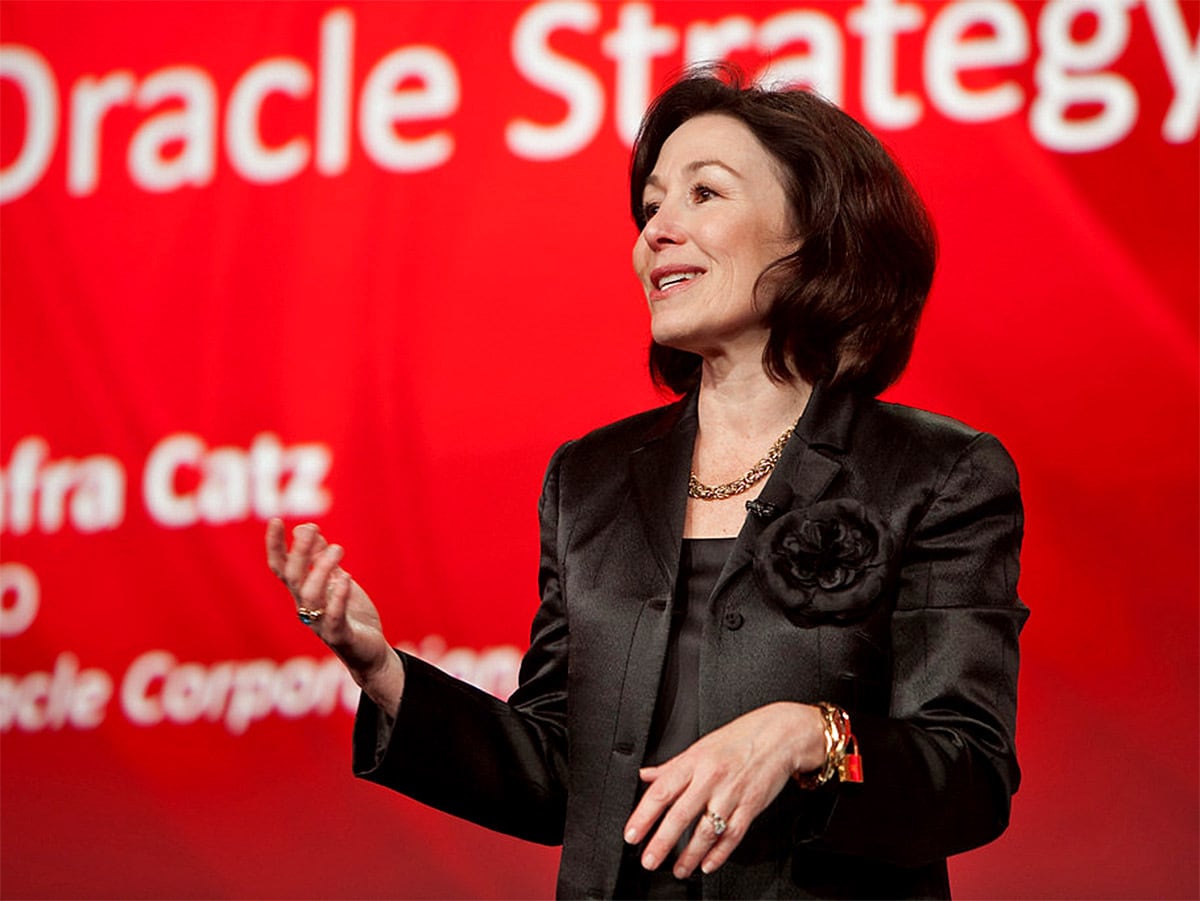The Oracle [ORCL] share price has been on cloud nine for the past 12 months, climbing 58.5% to $88.89 as of the 13 September close.
The company’s cloud-computing services have soared during the coronavirus pandemic, as the world moved online and several major platforms – notably including Zoom [ZM] – turned to Oracle to help boost their capability.
The company had been gradually transforming its services from traditional licensed software to cloud-based services before COVID-19 hit. However, the pandemic has accelerated the switch, and its Oracle Cloud Infrastructure and Autonomous Database platforms have helped it to outperform its leading cloud-computing rivals.
In the year-to-date to 13 September, Oracle’s share price has soared 39%, ahead of rivals Microsoft’s [MSFT] and Salesforce [CRM], whose share prices have risen 34.4% and 14.2%, respectively, in the same period. In comparison, German software giant SAP SE [SAP.DE] is down 16.3% to close at $122.70 on 13 September.
As the company prepares to announce its earnings report on 13 September, could the Oracle share price soar ahead further?
Oracle share price lifts cloud funds
Oracle’s operating margin for the past 12 months is 38.67%, outpaced in the cloud space only by Microsoft’s 41.60%. With Oracle’s cloud model continuing to overtake its poorer-performing hardware and services units, it seems likely this trend could continue.
The world’s increased reliance on the cloud has led to cloud computing ETFs gaining significantly in the past year. In the past 12 months (through 13 September), the First Trust Cloud Computing ETF [SKYY], which has a 3.7% weighting in Oracle, has gained 44.1%. The fund has outperformed the S&P 500’s 33.7% rise in the same period.
38.67%
Oracle's operating margin for past 12 months
The ETF with the greatest exposure to Oracle shares at 6.25% as of 13 September is the iShares Expanded Tech-Software Sector ITF [IGV], which has climbed 16.4% in the year-to-date and 23.6% since its May low of $333.59. As of 13 September, Oracle also makes up 5.8% of the Invesco Buy Back Achieves ETF [PKW], which has returned 27.2% in the year to date.
Cloud growth boosts revenue
Oracle’s previous earnings report in June revealed earnings growth of 29% to $1.54, beating analysts’ estimates of $1.31 by $0.23. Revenue for the quarter was posted at $11.23bn, ahead of the consensus estimate of $11.04bn and up 7.5% on the same quarter the previous year.
In the four days following the report, Oracle’s share price fell 7.8% from $82.62 to $76.23 but recovered within three weeks and by mid-July was up at $90.69. The earnings were boosted by a one-time net tax benefit totalling $2.3 bn, related to the transfer of assets between subsidiaries in the third quarter of 2021.
“Given our increasing confidence in revenue growth and our unique and differentiated position in the market, we are going to invest back in the business at a greater rate, so we can further accelerate the top line” - Safra Catz, CEO of Oracle
“Our overall revenue growth is continuing to accelerate as our fast-growing cloud business becomes a larger portion of our total revenue,” Safra Catz (pictured), CEO of Oracle, said in the June earnings call. “I see total revenue for fiscal 2022 growing faster than fiscal ‘21, with constant currency revenue growth somewhere in mid-single digits. Given our increasing confidence in revenue growth and our unique and differentiated position in the market, we are going to invest back in the business at a greater rate, so we can further accelerate the top line.”
A hold for the long term?
Analysts are expecting Oracle to post earnings of $0.97 per share, which would suggest a year-on-year growth of 4.3%. According to Zacks Equity Research, the consensus EPS forecast for the quarter is $0.97 based on seven analysts' forecasts. The publication’s consensus estimates expect quarterly revenue of $9.77bn, up 4.32% from the year-ago period.
The current consensus among 28 analysts polled by CNN is to hold the stock based on 19 analysts, with five giving buy ratings.
“The company’s investments in cloud infrastructure and marketing could lower its free cash flow going forward,” Mark Hake, a financial analyst, wrote in InvestorPlace. “That will lower its margins but should pay off in the long run.”
Disclaimer Past performance is not a reliable indicator of future results.
CMC Markets is an execution-only service provider. The material (whether or not it states any opinions) is for general information purposes only, and does not take into account your personal circumstances or objectives. Nothing in this material is (or should be considered to be) financial, investment or other advice on which reliance should be placed. No opinion given in the material constitutes a recommendation by CMC Markets or the author that any particular investment, security, transaction or investment strategy is suitable for any specific person.
The material has not been prepared in accordance with legal requirements designed to promote the independence of investment research. Although we are not specifically prevented from dealing before providing this material, we do not seek to take advantage of the material prior to its dissemination.
CMC Markets does not endorse or offer opinion on the trading strategies used by the author. Their trading strategies do not guarantee any return and CMC Markets shall not be held responsible for any loss that you may incur, either directly or indirectly, arising from any investment based on any information contained herein.
*Tax treatment depends on individual circumstances and can change or may differ in a jurisdiction other than the UK.
Continue reading for FREE
- Includes free newsletter updates, unsubscribe anytime. Privacy policy





